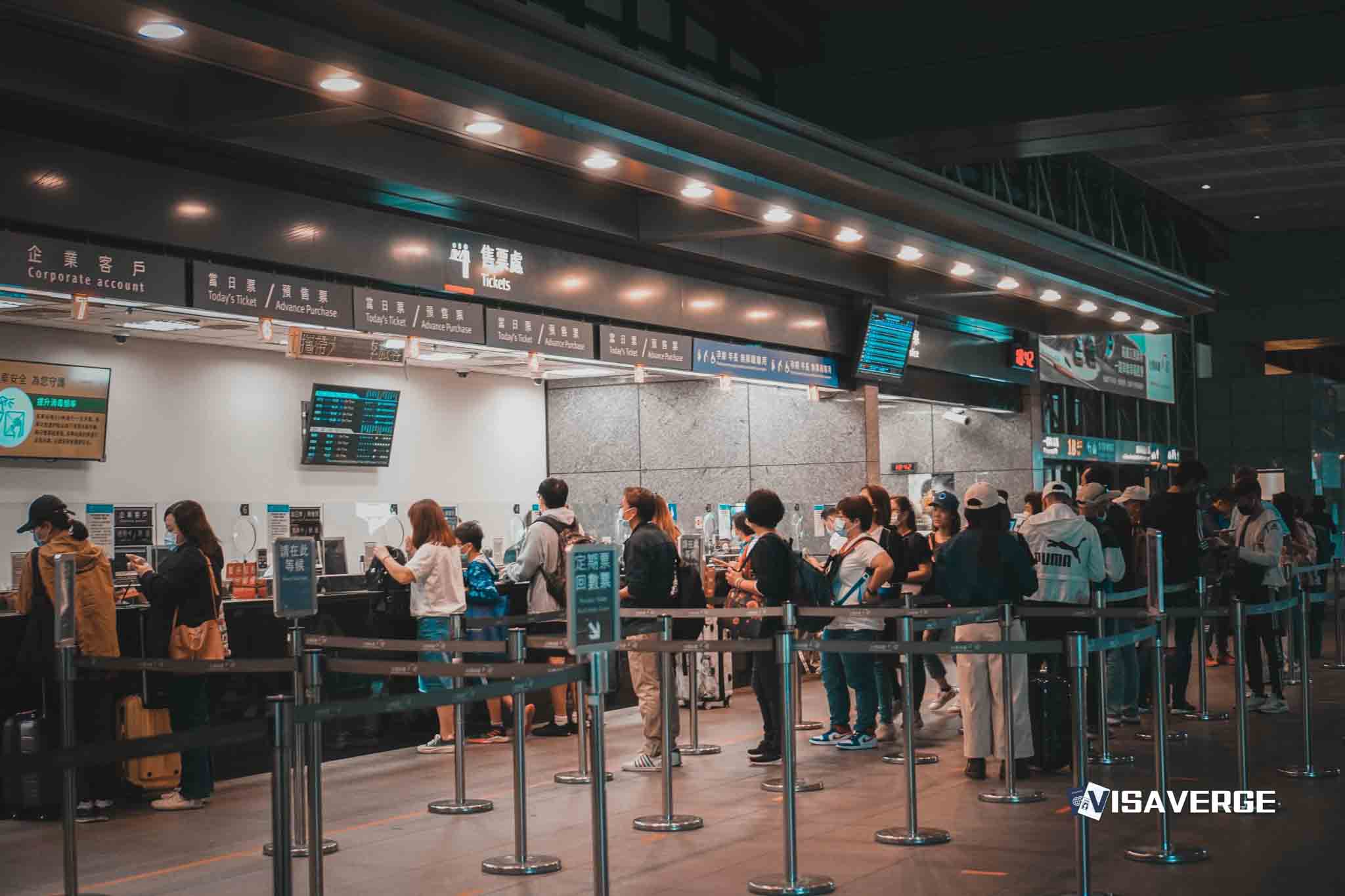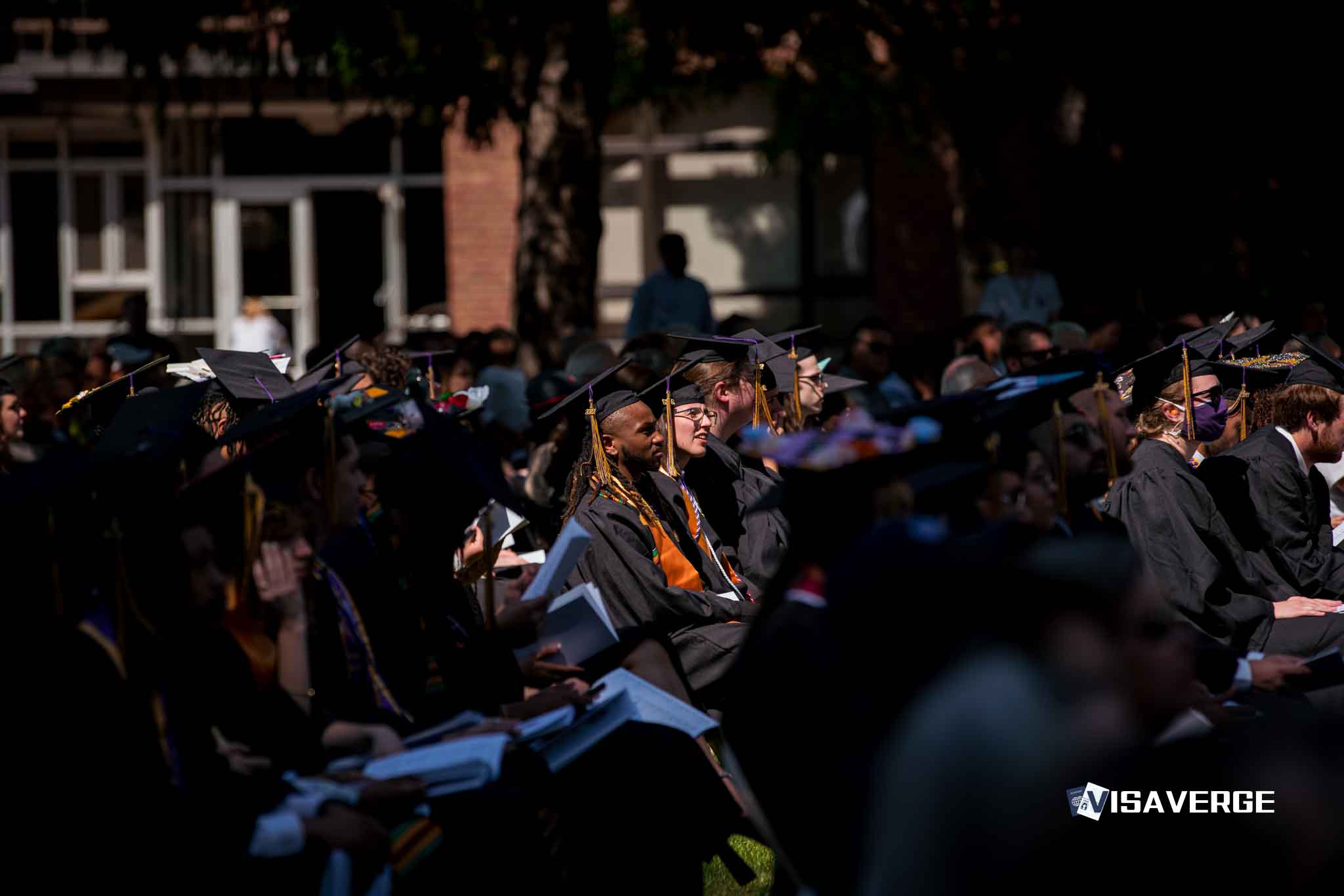Key Takeaways
• No recent arrests for bomb threats related to US visa denials as of June 2025.
• 400,000 visa overstays suspected in 2023, posing national security risks.
• Bomb threats after visa denial lead to arrest, criminal charges, and permanent US bans.
On June 16, 2025, concerns about threats linked to U.S. visa denials and overstays remain at the forefront of immigration policy discussions. While there has been no widely reported arrest for a bomb threat call specifically over a U.S. visa denial in the past week, the topic brings together several important issues: national security, visa enforcement, and the consequences of criminal acts tied to immigration status. This article explores the latest developments, official policies, and the real-life impact of these situations on immigrants, government agencies, and the broader public.

Arrests and Threats: What’s Happening Now?
Who, What, When, Where, Why, and How
As of mid-June 2025, there have been no major news stories about someone being arrested for making a bomb threat call after being denied a U.S. visa. However, there have been recent incidents where people with visa or immigration problems have been arrested for other types of threats or violent acts. For example, on June 1, 2025, a man who had overstayed his visa was arrested after a violent attack in Boulder, Colorado. This case did not involve a bomb threat, but it has drawn attention to the risks connected to visa overstays.
Why is this important?
Threats or violence in response to visa denials are taken very seriously by U.S. authorities. Even though no recent bomb threat arrest has been reported, the government continues to focus on stopping such threats and enforcing immigration laws. According to analysis from VisaVerge.com, these issues highlight the need for strong security checks and careful tracking of visa holders.
Visa Denials and Bomb Threats: The Legal Consequences
What happens if someone makes a bomb threat after a visa denial?
- Immediate Law Enforcement Response: If a person makes a bomb threat—by phone, email, or in person—after being denied a U.S. visa, law enforcement agencies are notified right away. This includes local police, the FBI, and sometimes the Department of Homeland Security (DHS).
- Arrest and Charges: The person can be arrested and charged with making terroristic threats, which is a serious crime. If the threat is made from outside the United States 🇺🇸, international law enforcement may get involved.
- Immigration Consequences: Making a bomb threat or any violent threat can lead to permanent inadmissibility to the United States 🇺🇸. This means the person may never be allowed to enter the country again.
- Other Penalties: Criminal charges can result in jail time, fines, and a criminal record that follows the person for life.
Key Point:
Making a bomb threat in response to a US visa denial is a crime and can destroy any chance of future travel to the United States 🇺🇸.
Visa Overstays: A Growing Security Concern
What is a visa overstay?
A visa overstay happens when someone enters the United States 🇺🇸 legally on a visa but stays longer than they are allowed. For example, if a tourist visa is valid for six months, but the person stays for a year, that is a visa overstay.
Recent Data:
– In fiscal year 2023, about 400,000 people were suspected of overstaying their visas, according to the Department of Homeland Security.
– Visa overstays are now seen as a major national security risk, especially after recent violent incidents involving people who remained in the country after their visas expired.
Expert View:
Former FBI agent Jonathan Gilliam has warned that visa overstays can be a national security problem. He pointed to the Boulder, Colorado attack as an example of how dangerous it can be when people stay in the country illegally after their visas expire.
How the U.S. Handles Visa Denials and Appeals
Step-by-Step: What Happens When a Visa is Denied?
- Application Review:
- The applicant submits a visa application to a U.S. embassy or consulate.
- A consular officer reviews the application and supporting documents.
- Denial Notification:
- If the visa is denied, the applicant receives a written notice explaining the reason for the denial.
- Appeal or Reapplication:
- Depending on the type of visa and the reason for denial, the applicant may be able to appeal the decision or reapply. For example, some nonimmigrant visa denials can be appealed, while others cannot.
- For more information on visa types and appeals, visit the U.S. Department of State’s official visa page.
- Legal Consequences for Threats:
- If the applicant responds to the denial with a bomb threat or other criminal act, law enforcement is notified.
- The person may be arrested, prosecuted, and permanently banned from entering the United States 🇺🇸.
Important:
Threats or violence in response to a visa denial will not help your case and will only lead to serious legal trouble.
Policy Changes and Government Response
No New Laws for Bomb Threats Over Visa Denials
There have been no new federal laws or executive orders in the past week that specifically address bomb threats made after visa denials. However, the U.S. government continues to focus on:
- Strict Vetting: Careful background checks for all visa applicants.
- Visa Overstay Enforcement: Tracking and removing people who stay past their visa expiration.
- Security Screening: Using advanced technology and data to spot possible threats before they enter the country.
White House and DHS Statements:
The White House and the Department of Homeland Security have both said that protecting the United States 🇺🇸 from terrorism and other threats is a top priority. They support strong enforcement of immigration laws and careful screening of all visitors.
Stakeholder Perspectives
Government Officials:
– Focus on national security and public safety.
– Support strict enforcement of visa rules and quick action against threats.
Immigrant Advocates:
– Call for fair treatment and due process for all visa applicants.
– Warn against policies that might unfairly target innocent people or lead to discrimination.
Experts:
– Suggest using better technology to track visa holders and overstays.
– Recommend balanced policies that protect security but also respect the rights of immigrants.
Real-Life Impact: What Does This Mean for Immigrants?
For Visa Applicants:
– Increased Scrutiny: People applying for U.S. visas may face more questions and background checks.
– Consequences for Overstays: Staying in the United States 🇺🇸 after your visa expires can lead to deportation, bans on future entry, and even criminal charges.
– Zero Tolerance for Threats: Any threat, including a bomb threat, will be taken seriously and can result in arrest and a permanent ban.
For Families and Employers:
– Family Members: If a loved one is denied a visa, it is important to follow legal steps for appeal or reapplication. Do not resort to threats or illegal actions.
– Employers: Companies sponsoring foreign workers must ensure that employees maintain valid visa status and do not overstay.
How to Respond to a Visa Denial
If your U.S. visa is denied:
- Read the Denial Notice: Understand the reason for the denial. Common reasons include missing documents, not meeting eligibility requirements, or concerns about intent to return home.
- Consider Reapplying: If the problem can be fixed (such as missing paperwork), you may be able to reapply.
- Seek Legal Help: If you believe the denial was a mistake, consult an immigration lawyer for advice.
- Never Make Threats: Responding with anger or threats will only make things worse and can lead to arrest.
What Happens If You Overstay Your Visa?
- Tracking and Enforcement: The Department of Homeland Security uses data and technology to track visa holders and identify overstays.
- Possible Outcomes:
- Detention: You may be detained by immigration authorities.
- Removal Proceedings: You could be placed in removal (deportation) proceedings.
- Bans on Reentry: Overstaying your visa can result in a ban from entering the United States 🇺🇸 for several years, or even permanently.
- Legal Help: If you have overstayed your visa, it is important to seek legal advice right away.
Common Questions
Can I appeal a U.S. visa denial?
– It depends on the visa type and the reason for denial. Some denials can be appealed or reviewed, while others cannot.
What are the consequences of making a bomb threat over a visa denial?
– You can be arrested, charged with a serious crime, and permanently banned from the United States 🇺🇸.
What should I do if I am denied a visa?
– Stay calm, read the denial notice, and consider your options for appeal or reapplication. Never respond with threats or violence.
Background: Why Are Visa Overstays and Threats a Big Deal?
Historical Context:
Visa overstays have been a problem for many years. People who enter the United States 🇺🇸 legally but stay after their visas expire make up a large part of the undocumented population. High-profile crimes by people who overstayed their visas have led to more attention from the public and lawmakers.
Policy Evolution:
The U.S. government has tried many ways to fix this problem, including better tracking systems, biometric checks (like fingerprints), and more frequent checks at borders and airports.
Looking Ahead: What’s Next for Visa Enforcement?
Stronger Enforcement Expected:
– The government is likely to keep increasing efforts to find and remove people who overstay their visas.
– New technology, such as facial recognition and better databases, will help track visa holders.
Possible New Laws:
– Lawmakers may propose new rules to make it harder for people to overstay or to punish those who make threats after visa denials.
Advice for Immigrants:
– Always follow the law, keep your visa status up to date, and never respond to setbacks with threats or violence.
Official Resources
For the latest and most accurate information on U.S. visas, denials, and overstays, visit the U.S. Department of State’s official visa page.
Summary Table: Key Facts
| Issue | Date/Statistic | Source/Stakeholder |
|---|---|---|
| Visa overstays (FY 2023) | 400,000 suspected overstays | DHS |
| Boulder attack | June 1, 2025 | Fox News |
| Recent bomb threat arrest | No direct match (June 2025) | N/A |
| Policy focus | Visa overstay enforcement | White House, DHS |
Takeaways and Practical Guidance
- Never make threats, including bomb threats, in response to a visa denial. This will lead to arrest, prosecution, and a permanent ban from the United States 🇺🇸.
- If denied a visa, read the notice carefully and consider your legal options. Reapplying or appealing may be possible, depending on your case.
- If you have overstayed your visa, seek legal help immediately. Overstays can lead to removal and bans on future entry.
- Stay informed. Use official government resources for the most up-to-date information on visas and immigration policies.
As reported by VisaVerge.com, the U.S. government’s focus on visa enforcement and security is unlikely to change soon. Immigrants, families, and employers should stay aware of the rules and avoid any actions that could lead to serious legal trouble. For more details, always check official sources and seek professional advice if needed.
Learn Today
Visa Denial → Official refusal to grant a visa preventing legal entry to the United States.
Bomb Threat → A false or real statement warning of an explosive device to cause fear or disruption.
Visa Overstay → Remaining in the US beyond a visa’s authorized period, violating immigration laws.
Terroristic Threats → Criminal charges for threatening harm to people or property with violence or fear.
Removal Proceedings → Legal process to deport an individual who violates immigration regulations.
This Article in a Nutshell
Concerns about bomb threats linked to US visa denials persist in 2025. No recent arrests, yet visa overstays remain a security issue. Authorities emphasize strict enforcement and legal consequences for threats. Immigrants must avoid illegal actions and seek legal guidance if denied visas to prevent serious penalties.
— By VisaVerge.com













